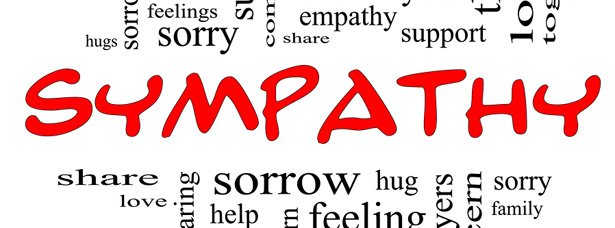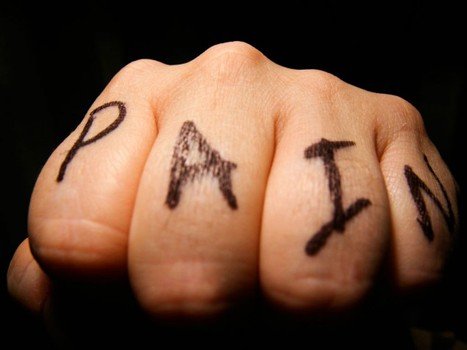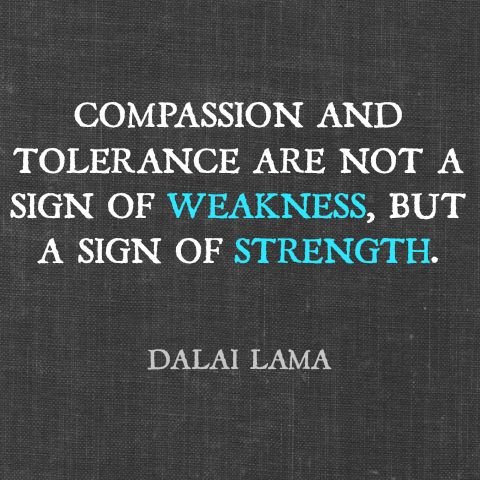Passions That Arises From The Human Bodypassions compassions sympathy eduation philippines
Passions That Arises From The Human Body

Image Source
It is revolting to express any strong degree of the passions that emerge from a specific disposition of one's body, in light of the fact that the people is aren't in that bodily state thus can't be required to sympathize with them. Vicious hunger, for instance, however on many occasions is natural as well as unavoidable, is constantly obscene, and to eat unquenchably is universally viewed as a bit of ill manners. Still, there is some level of sympathy even with hunger.
It is pleasing to see our allies eat with a good appetite, any expression of abhorring for the food one has tasted is hostile. A healthy man's ordinary bodily state makes his stomach effortlessly keep time with one and not with the other. We can sympathize with the misery of intemperate hunger when we read the depiction of an attack.
Imagining ourselves in the situation of the sufferers, we can without much of a stretch consider the misery, fear and shock that must essentially distract them. We ourselves feel some degree of those passions, and in this way sympathize with them, yet perusing the portrayal doesn't make us hungry, so it's not entirely exact to state that we sympathize with their hunger.
It's the same with the passion by which nature joins the sexes. In spite of the fact that it is naturally the most angry of all the passions, strong expressions of it are constantly revolting, even between people who are totally allowed, by human and perfect laws, to enjoy this passion together.
Still, there is by all accounts some degree of sympathy even with this passion. It isn't appropriate to converse with a woman as we would to a man it is normal that their company ought to motivate us with more jollity, more merriment, and more consideration, and a whole obliviousness to the fair sex makes a man to some degree wretched even to men. We have such an abhorrence for all the appetites that originate in the body that we locate all strong expressions of them evil and unpleasant.

Image Source
Some ancient philosophers held that these are the passions that we share with the lower animals, so they are beneath our dignity since they have no association with the characteristic characteristics of human nature. In any case, there are many other passions that we have in common with the lower animals like natural affection, resentment, even gratitude, that don't strike us as animal-like.
The real reason for the uncommon nauseate we have for the body's appetites when we see them in other men is that we can't go into them, can't sympathize with them. To the individual who has such a passion, when it is satisfied the object that aroused it stops to be pleasing, even its essence frequently winds up plainly hostile to him, he searches futile for the charm that cleared him away the moment some time recently, and he can't currently go into his own particular passion any more than anyone else can.
After we have feasted, we arrange the table to be cleared, and we would treat in a similar manner the objects of the most vigorous and passionate wants on the off chance that they were the objects just of passions that originate in the body. The virtue of temperance, appropriately purported, is the command of the body's appetites. Prudence includes keeping those appetites inside the limits required by a worry for one's health and fortune. Be that as it may, temperance keeps them inside the limits required by proprietary, grace, modesty, and delicacy.
For that same reason, it generally appear to be unmanly and unbecoming to shout out with bodily pain, however heinous it is. However there is a good deal of sympathy even with bodily pain. In the event that I see a truncheon going to descend on someone else's arm, I naturally psychologist and draw back my own arm, and when the blow falls I feel it in some measure, and I am harmed by it and additionally the sufferer. In any case, my hurt is extremely slight, so that on the off chance that he influences a brutal objection I to will scorn him since I can't oblige him.
That is the manner by which it is with all the passions that originate in the body, they stir in the observer either no sympathy at all or such a low level of sympathy that it is inside and out unbalanced to the brutality of what the sufferer feels. It is quite otherwise with passions that originate in the imagination.

Image Source
The state of my body can't be abundantly influenced by changes that are achieved in my buddy's body, however my imagination is more malleable, and all the more promptly goes up against the shape and lay-out of the imaginations of people I have contact with. That is the reason a disappointment in love or ambition will inspire more sympathy than the greatest bodily evil.
Those passions emerge purely from the imagination. The individual who has lost his whole fortune, on the off chance that he is in good health, feels nothing in his body. What he suffers comes totally from his imagination, which speaks to him the fast approach of the loss of his dignity, disregard by his friends, disdain from his enemies, reliance, poverty and wretchedness, and we sympathize with him more strongly on account of this misfortune than we improve the situation any physical pain he is suffering since it's simpler for our imaginations to form themselves on his imagination than for our bodies to shape themselves on his body.
The loss of a leg may generally be viewed as a more real calamity than the loss of a mistress. However it would be a ludicrous dramatic disaster of which the central calamity was to concern the loss of a leg, while a misfortune of the other kind, however trifling it might have all the earmarks of being, has offered occasion to many a fine tragic drama. Nothing is as fast overlooked as pain.
The moment it is gone its whole agony is over, and its prospect can never again give us any kind of unsettling influence. After the pain is over, we ourselves can't go into the anxiety and anguish that we had amid it. An unguarded word from a friend will cause a more strong unhappiness, the agony it creates is in no way, shape or form over once the word has gone.
What at first exasperates us isn't the object of the senses yet the possibility of the imagination, and in light of the fact that it is a thought, its prospect keeps on fussing and unsettle the imagination until the point when time and other scenes in some measure delete it from our memory. Pain never brings out any vivacious sympathy unless peril accompanies it.

Image Source
We sympathize with sufferer's fear yet not with his agony. Fear is a passion got altogether from the imagination, which speaks to not what we really now feel but rather what we may endure later on. The toothache, however strongly painful, stimulate little sympathy, more risky illnesses, notwithstanding when joined by little pain, stir sympathy in the highest degree.
A few people black out and develop tired at seeing a surgical operation, the bodily pain caused by tearing the flesh appears to stimulate the most over the top sympathy in them. We do imagine in a substantially more vivacious and particular manner the pain that originates from an external reason than pain originating from an inward issue. I can barely form a thought of my neighbor's desolations when he is tortured by gout or a gallstone, yet I have the clearest origination of what he should experience the ill effects of an entry point, an injury, or a fracture.
In any case, the fundamental motivation behind why such objects create such brutal impacts on us is that we aren't used to them. Someone who has seen twelve dissections and the same number of removals will from that point on observe all operations of this kind with great smoothness and frequently with no inclination at all for the sufferer. A portion of the Greek tragedies attempt to excite compassion by speaking to the miseries of bodily pain.
Philoctetes shouts out and blacks out from the furthest point of his sufferings. Hippolytus and Hercules are both presented as kicking the bucket from the severest tortures, ones that appear to have been more than even the strength of Hercules could bear. Be that as it may, in all these cases, what concerns us isn't the pain however other features of the situation.

Image Source
What influences us isn't Philoctetes' sore foot however his isolation, which diffuses over that charming disaster the romantic ferocity that is so pleasant to the imagination. The desolations of Hercules and Hippolytus are fascinating simply because we predict that death will come about because of them. On the off chance that those heroes recovered, we would think the portrayal of their sufferings to have been impeccably crazy.
These endeavors to excite compassion by the portrayal of bodily pain might be viewed as among the Greek theater's greatest disappointments of good manners. The propriety of steadiness and persistence in persevering bodily pain depends on the fact that we feel little sympathy with such pain.
The man who under the severest tortures allows no shortcoming to escape him, who doesn't articulate a moan or offer path to any passion that we don't altogether go into, commands our highest admiration. His immovability empowers him to keep time with our detachment and numbness. We appreciate and altogether oblige the unselfish exertion that he makes for this reason.
We favor of his behavior, and our experience of the common shortcoming of human nature makes us astonished by it, and we ponder what empowered him to act in order to merit approval. Approval, blended with a breathing life into input of ponder and shock, constitutes the sentiment that is legitimately called admiration, of which praise is the natural expression.

Image Source

Reference:
Theory of Moral Sentiments
By: Adam Smith